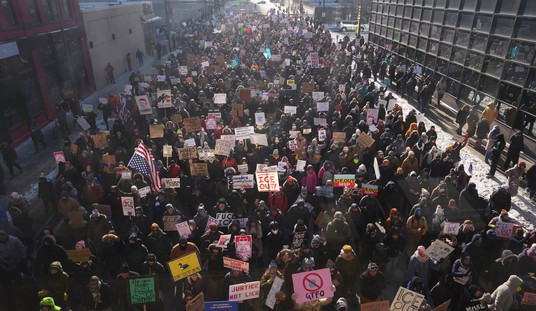Ironically, one of the early targets of Donald Trump’s candidacy was Senator John McCain. If there’s one candidate in the too-large GOP field that reminds the casual observer of John McCain, it’s Donald Trump — John McCain on steroids with a bad rug.
As a conservative with some libertarian leanings, one of the most important reasons I couldn’t support John McCain for the nomination in 2008 was that he had ceased being a reliable conservative long before. His nickname the Maverick, which was given by a then-adoring media, spoke to his frequent wandering from the GOP reservation. But it wasn’t because the GOP was too moderate and he was staking out a conservative position; he was siding with liberal Democrats and undermining the conservative agenda.
Too often, Senator McCain’s policy positions were based on his own personal beliefs rather than any known, coherent political ideology. For example, he was a staunch supporter of “campaign finance reform,” which most conservatives see as an infringement on our constitutional right to free political speech. Hell, even the Supreme Court agreed. McCain-Feingold was an abomination, and its Republican champion was disqualified from my consideration during primary season.
But it wasn’t just campaign finance reform. As Charles Krauthammer said in 2008:
McCain’s apostasies are too numerous to count. He’s held the line on abortion, but on just about everything else he could find — tax cuts, immigration, campaign-finance reform, Guantanamo — he not only opposed the conservative consensus but insisted on doing so with ostentatious self-righteousness.
The point is that McCain, like Trump, represented a grab bag of ideas that had his personal approval in common and little else. And if anyone characterizes “ostentatious self-righteousness” more than McCain, it’s Donald Trump. “Yuge,” 24-carat ostentatious self-righteousness, the classiest and most beautiful ostentatious self-righteousness you’ve ever seen.
Trump is a magnified version of McCain. He stands for protectionism, not the conservative position of free markets.
Trump stands for nativism, which may be titillating to some who consider themselves to be conservative but is definitely not a core conservative value nor one of the party of Lincoln.
Trump has been on every side of every major issue; he’s not even consistent with his own scattered viewpoints. Within the span of a couple of minutes, The Donald was for a flat tax before he was against it. Abortion, Planned Parenthood? Supported them both. Gun control? Good until it was bad. Socialized medicine? Surely, you get the point by now.
Then, there’s the matter of his material support for liberal Democrat candidates. He shamelessly boasts about his buying politicians left and right, and somehow his supporters, who claim to be fed up with business as usual in Washington, D.C., are okay with this.
The fundamental problem for any conservative GOP voter is not knowing where Trump stands on an issue of fundamental importance, and not knowing for how long he will retain that stance. As Charles C.W. Cooke put it, “Donald Trump sounds like a drug-addled rock star”:
His sentences, such as they were, invariably ended up in places that bore no relation whatsoever to their beginnings. His commitment to his sentiments, many of which appeared spontaneously, seemed to be driven in real-time by the crowd’s undulating, fickle, near-braying responses.
And like McCain before him, Trump is the darling of the media:
Anyone else with that record would be a perfect example of a RINO, but with the Donald’s skill at self-promotion and the Legacy Media’s willingness to go along, Trump is currently leading many polls.
Of course, building up Trump helps them achieve ratings, and per their way of thinking, there will be time to turn on him later, as they did with McCain.
But Trump is more troublesome than McCain. He’s made it clear that he holds no allegiance to the party whose nomination he seeks; an independent run once he’s been metaphorically fired seems probable. But even if he doesn’t run a spoiler campaign, he’s sucking all the oxygen out of a room in which the presumptive Democrat nominee, Hillary Clinton, is burning down.
Ultimately, I voted for John McCain in the 2008 general election because I felt an obligation to do my part to stop the collective delusion that was Barack Obama from becoming president. This time, I’m afraid the collective delusion is running for the Republican nomination, and I won’t commit to him because he won’t commit to me or anything I hold dear.









Join the conversation as a VIP Member